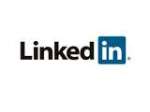![]() Microsoft is buying Skype for $8B or more. Why? eBay bought Skype (well most of it) in 2005 for $3.1B and sold most of what it owned fo $2B in 2009 after losing money. Skype has lots of users who generated 95 billion minutes of usage. They generated $406M in revenue and earned $13M in profit (a 3.2% profit margin, which reminds me of something my Teledyne Group exec used to say sometimes, “For really smart people, you sure do work your asses off not to make any money.”)
Microsoft is buying Skype for $8B or more. Why? eBay bought Skype (well most of it) in 2005 for $3.1B and sold most of what it owned fo $2B in 2009 after losing money. Skype has lots of users who generated 95 billion minutes of usage. They generated $406M in revenue and earned $13M in profit (a 3.2% profit margin, which reminds me of something my Teledyne Group exec used to say sometimes, “For really smart people, you sure do work your asses off not to make any money.”)
What are they thinking? What could possibly make Skype worth 3x what it was worth two years ago, assuming it was worth $2B+ then? Acquisitions have a history of not working and this one makes little sense, especially at this valuation. But Microsoft has really smart people, so I could be wrong. One thing is for sure, they have lots of money, at least for now.
 Then we have the second valuation stunner of the day … LinkedIn going public at a $3B valuation. No question here who is smart … the LinkedIn folks and their investment bankers. What is the “public” thinking? Again we have a company with $243M revenue making $3.4M in profit. And they are on track this year to do $400M. What is their revenue model that makes anyone think they could be worth $3B now and even more in the future? Selling upgrades to recruiters? Selling pay-per-click ads? Based on my experience with them, that model can at best be dubious?
Then we have the second valuation stunner of the day … LinkedIn going public at a $3B valuation. No question here who is smart … the LinkedIn folks and their investment bankers. What is the “public” thinking? Again we have a company with $243M revenue making $3.4M in profit. And they are on track this year to do $400M. What is their revenue model that makes anyone think they could be worth $3B now and even more in the future? Selling upgrades to recruiters? Selling pay-per-click ads? Based on my experience with them, that model can at best be dubious?
But the “greater fool” theory lives on. It reminds me of the women who was excited about getting stock the day a company did its IPO. The fact that her purchase price on that day was MUCH higher than it closed on that day did not seem to bother her. Internet Bubble 2.0?
Mitch



